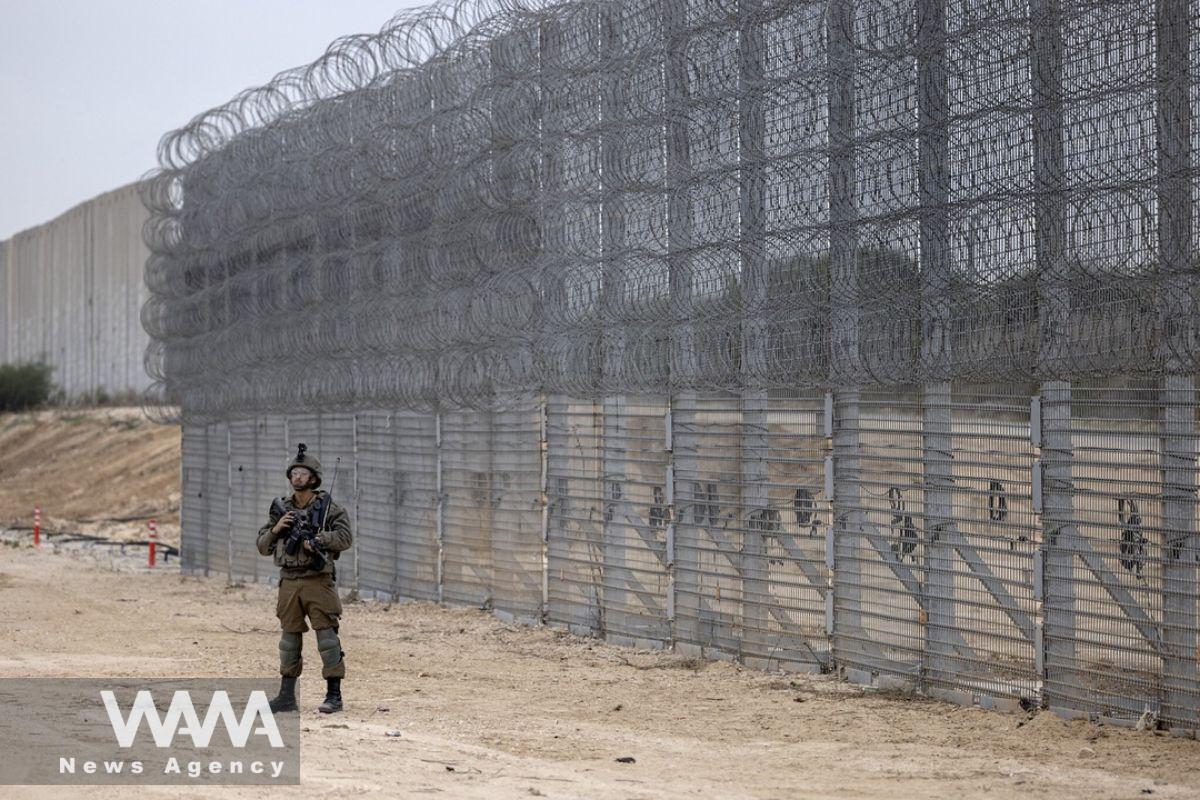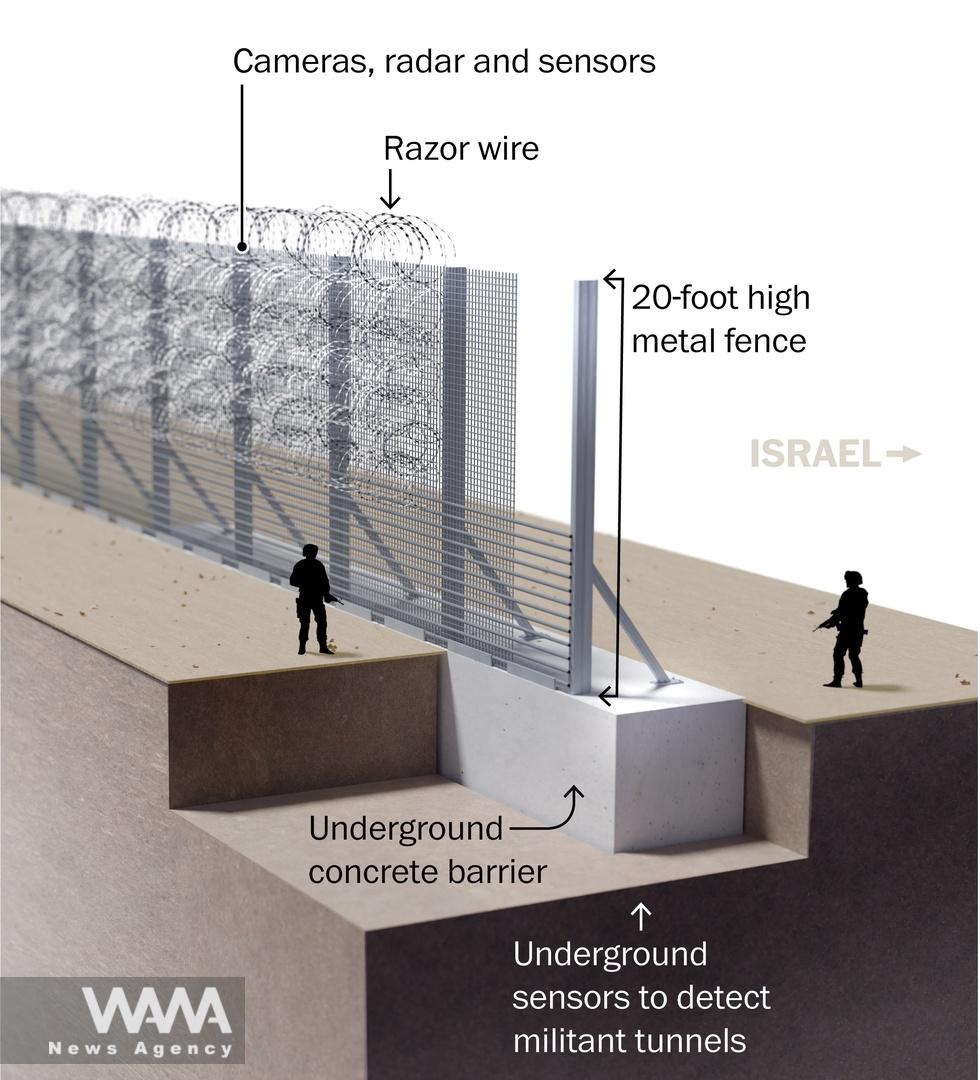The Storm that Shattered Israel’s Military Prestige
WANA (Oct 07) – On October 7, 2023, Hamas forces breached Israel’s highly touted “smart wall,” not only undermining Tel Aviv’s security doctrine but also casting doubt on the reliability of Israel’s military and security equipment for international buyers.
Israel’s defence systems, particularly the Iron Dome, have long been regarded as some of the country’s most significant military achievements, with Israel frequently praising their effectiveness in countering threats. The development of these systems, crucial for Israel’s security, has been supported by the U.S., ensuring access to cutting-edge technologies for addressing security challenges.
However, on October 7, 2023, this image was shattered. Israel’s advanced surveillance and protective systems, which were once considered highly reliable, failed during Hamas’s “Al-Aqsa Storm” operation, unable to detect or prevent the attack.

The Resistance Storm and the Collapse of Israel’s Security Systems
Within hours of the large-scale operation by Hamas forces from land, sea, and air, they successfully breached Israeli towns around Gaza, bypassing Israel’s “smart security wall.” According to Israeli media, building this wall took about 3.5 years and cost approximately $1.1 billion. It was considered one of the most advanced security barriers in the world, designed by the Israeli military to prevent any infiltration.
In December 2021, Israel’s Ministry of Defense completed the wall’s construction. Over 1,200 workers participated in its construction, using 140,000 tons of iron and steel. Benny Gantz, Israel’s Defense Minister, described the wall as a “technological masterpiece” that was supposed to neutralize Hamas’s operational capabilities.
However, all these measures failed by 7 a.m. on October 7, 2023. The wall’s surveillance systems suddenly shut down, early warning technologies and automated firing systems were disabled, and cameras, radars, and underground and above-ground listening devices could not detect the infiltration. The Israeli military later confirmed that Hamas forces breached the wall at 29 different points.

Even the communication and control systems between forces stationed around Gaza and the Israeli Army’s command centre in Tel Aviv, up to a depth of 35 kilometres, were disabled. The Iron Dome systems also failed during the simultaneous launch of dozens of short-range “Rajum 114” rockets, paving the way for Hamas gliders and motorcyclists to infiltrate the security zone known as the “Gaza Envelope.”
The Decline of Israel’s Military Prestige
The French newspaper Le Figaro wrote after Hamas’s operation that the technologies installed in the steel wall, which had been touted as an exceptional Israeli innovation, proved highly vulnerable against Hamas forces. These forces breached the borders within just a few hours, challenging the Israeli military’s capabilities despite its $23 billion defence budget.
Jonathan Conricus, former spokesperson for the Israeli army, likened this failure to Japan’s aerial attack on the U.S. fleet at Pearl Harbor in an interview with CNN, saying, “This moment is like Pearl Harbor for Israel; the beginning of a new reality.” Similarly, former Israeli Prime Minister Naftali Bennett, in an interview with Fareed Zakaria, used the “Pearl Harbor” metaphor to describe the infiltration, referencing historic surprises in warfare.
As soon as Operation “Al-Aqsa Storm” began, images of Hamas’s Izz al-Din al-Qassam Brigades on Israeli Merkava tanks and Nammer armoured personnel carriers made global headlines.
These forces overpowered the crew of these armoured vehicles, neutralized them, and destroyed the equipment. After the operation, Yedioth Ahronoth openly reported on July 14, 2024, that the Israeli military had been aware of problems with the tanks.
Reevaluation of Economic Transactions with Israel
The situation escalated to the point where Russian military expert Leonid Ivashov reacted to the destruction of Merkava 4 tanks by Palestinian forces using Yasin 105 rockets, emphasizing that this incident set a new standard for military power and could lead to a disaster for Israel’s arms exports.
In an interview with Sky News, he stated that a country’s credibility in arms exports depends on the effectiveness and performance of its weapons on the battlefield, and failures in this regard can tarnish its military sales reputation.
Ivashov predicted that weapons such as the Nammer armoured vehicle, Merkava tanks, and Israeli surveillance systems would face a rapid decline in sales. A few months later, in late March of this year, Bezhalel Machlis, CEO of Elbit Systems, announced that the company’s profits had decreased by about 22% following Operation Al-Aqsa Storm.
He noted that weapon manufacturing facilities in northern occupied Palestine had been evacuated due to the war in the towns of Kiryat Shmona and Sderot, and some operations of an Elbit Systems subsidiary in the United States had been halted.
In the following days, images circulated on social media showing local children playing on the destroyed armoured vehicles in Gaza as people mocked the once-feared machinery.
Arms Companies and Economic Losses
Arms companies are part of this puzzle. The Israeli regime was renowned as a startup hub. Many startups located in the occupied territories are situated near conflict zones, such as northern Palestine. This proximity has led to economic losses for the regime in the startup sector. Machlis stated that arms sales to the U.S. and Canada have declined, and the company is facing challenges due to weapon export bans from some countries to Israel.
However, the consequences of Hamas’s operations became evident much sooner than expected. The intelligence website INTELLIGENCE ONLINE reported on October 16, 2023—just nine days after the operation—that South Korea is reevaluating the effectiveness of the surveillance and security systems it purchased from Israeli company Elbit Systems for monitoring buffer zones with North Korea.
Exactly what Ivashov, a Russian military official, had previously mentioned the implications of the October 7 operation in an interview with Sky News happened. He pointed out, “Arms sales occur based on a series of agreements over several years, and the repercussions of the Gaza war on Israeli arms sales will become clear in the coming years due to their weak performance on the battlefield.” Ivashov predicted, “The first weapons expected to see a decline in sales after failing to meet their advertised features will be the Nammer armoured vehicle, Merkava tanks, and Israeli surveillance systems.”












